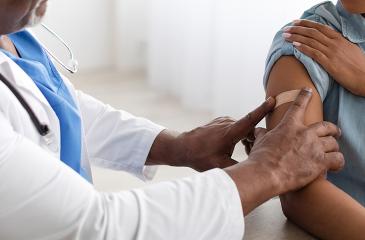Nearly two years ago, the Center for Global Health & Social Responsibility, in partnership with the Centers for Disease Control and Prevention, launched the National Resource Center for Refugees, Immigrants, and Migrants (NRC-RIM) to support local health departments and community-based organizations in addressing the public health needs of refugee, immigrant, and migrant communities.
Since then, NRC-RIM has been able to bring together many different stakeholders across sectors and establish partnerships; develop and disseminate language and culturally appropriate health education resources for RIM communities; create online training and other resources for public health professionals; and support pilot projects between health departments and community-based organizations.
Lessons learned become lessons shared.
NRC-RIM works with their partners, like the International Rescue Committee and Migrant Clinicians Network, to implement innovative practices in direct service to RIM communities. This includes organizing vaccine clinics, canvassing neighborhoods, supporting people during isolation and quarantine, and facilitating COVID-19 testing.
A guiding principle of NRC-RIM is that solutions should be developed in genuine partnership with affected communities. Community inclusion is not a “nice to have” but a “must have” and is the smart thing to do. Collaboration is powerful and it is important to do so in a nimble and flexible way.
Driving Innovation & Discovery
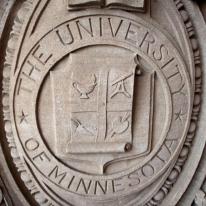
U of M, Minnesota State Collaborating to Address Nursing Workforce Crisis
Minnesota State and the University of Minnesota are working together to reimagine nursing education and address the growing shortage of nurses in Minnesota. The newly formed Coalition for Nursing Equity and Excellence will work with every school of nursing in the state, health care providers and others invested in improving health care in Minnesota to increase enrollment in nurse education programs at all degree levels, expand equity in the nursing workforce, and increase the success of nursing students.
Advancing Interprofessional Education & Training
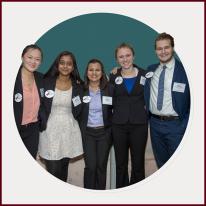
Global Health Case Competition 2022 Virtual Information Session
This competition is a unique opportunity for graduate and undergraduate students from multiple schools and disciplines to come together to develop innovative solutions for 21st century global health issues. Learn more at the virtual information session on Oct. 19.
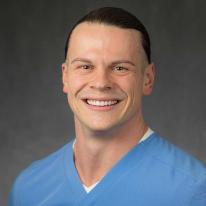
Students: What Do You Enjoy Most About Interprofessional Activities?
"By helping understand one's own identity while fostering partnerships that bridge the gap between other roles, interdisciplinary activities are essential for training future health care providers to collaboratively tackle complex health issues together. And that’s the beauty of it—we’re not in it alone. We are privileged to improve health outcomes for our patients together. Interprofessional experiences have been vital to this aim.” - Austin Hoeg, MD candidate
Partnering With Communities
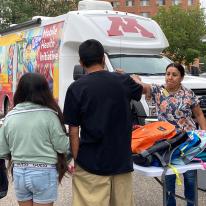
Promoting Community Health: CUHCC Hosts Annual Back-to-School Event for Families in South Minneapolis
Community-University Health Care Center (CUHCC) recently hosted a special back-to-school clinic event for families and children in South Minneapolis in celebration of National Health Center Week. CUHCC staff provided general health check-ups and vaccinations, including 24 medical visits and 14 dental visits. CUHCC also partnered with the University’s Mobile Health Initiative to provide 14 free vision screenings for patients. CUHCC hosts this event every year to bring together patients and their families, and inform community members of the importance of immunization, well-child checks, dental care and mental health services, all of which are available at CUHCC.
U-Wide Events and Opportunities
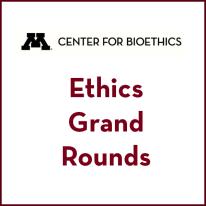
Ethics Grand Rounds: The Case for Health Care Reparations
Join the Center for Bioethics on Oct. 21 to hear Camisha Russel, PhD, draw on Olefumi Taiwo’s constructive view of reparations to argue that U.S. health care systems must be rebuilt in the name of racial justice. Russell will discuss the accumulations of advantage and disadvantage that characterize current U.S. health care systems and their relationship to past harms and the U.S. racial hierarchy. Russell will also consider the relationship of health care-based reparations to contemporary calls for racial justice like the “Black Lives Matter” movement.
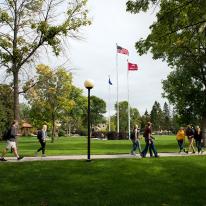
Rural Collective Event in Crookston
The UMN Rural Collective is hosting an event at the U of M Crookston on Oct. 27 in the Bede Ballroom. Attendees will learn about the Rural Collective and network with current and prospective members. The UMN Rural Collective is open to all faculty and staff who have an interest in rural health and other related rural issues.
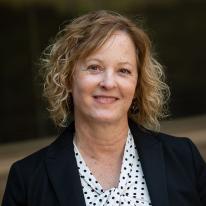
Childhood Obesity Prevention: The Role and Importance of Family
Childhood obesity is a complex public health problem that requires a multifaceted solution. Family characteristics and the household environment are important components of effective childhood obesity prevention initiatives. On Nov. 1 Jayne Fulkerson, PhD, will discuss her research on community interventions on the home food environment and family meals in urban and rural communities. RSVP by Oct. 28.

The Economic Impacts of COVID-19
Join the next M Health Fairview System Grand Rounds session Oct. 19 for a presentation by Eric Larsen, president of The Advisory Board Company, a best practices firm dedicated to improving the performance of health care organizations around the world. In this session, Larsen will provide a retrospective and forward-looking analysis of the health care industry, including deep dives into its major subsectors.
